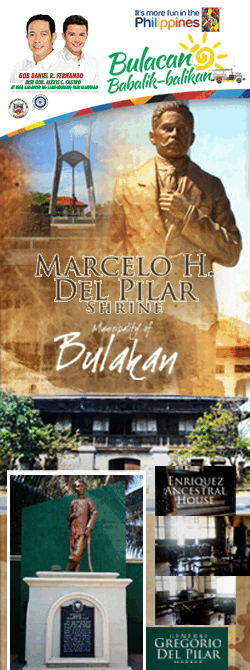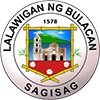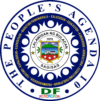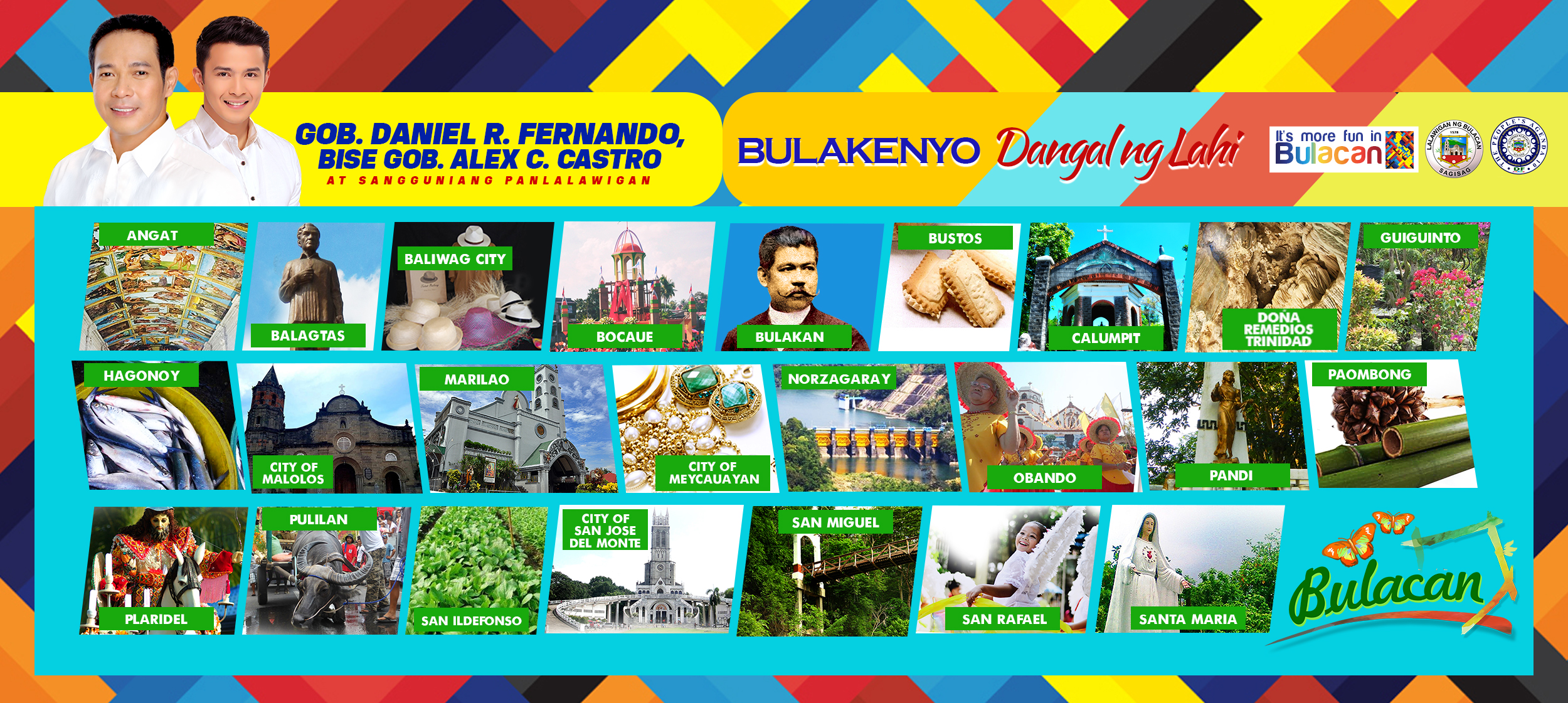
The name "Bulakan" was derived from the Tagalog word "bulak" which is cotton in English. When the Spaniards first came to the country's shore, they found cotton, among others, growing abundantly in many places in Luzon, particularly in Bulakan.
Prior to the arrival of the Spaniards, Bulakan, as well as the rest of the towns of Bulacan province, was consisted of small scattered settlements of villages each then called "barangay", a word derived from the name of the boats used by the early seafaring Malays who went to various islands of what we now called Philippines. These predecessors of our ancestors settled in different parts of the archipelago, and their villages and barangays swere each headed by a petty chieftain who bore the title "Gat" as is Gat-Maytan, Gat-Salian, and "Gat-Dula", and "Lakan" as in Lakandula. These early settlers lived along the seashores and rivers, thus they were called "taga-ilog", meaning people who dwell near the rivers or other waterways. From this term "taga-ilog" came the word "Tagalog".
The early Tagalog were peaceful, honest, industrious and hardworking and were engaged in farming, fishing and handicrafts, especially weaving.
From the original thriving native settlements or villages called "barangays", the Augustinian founded most of the towns in the province of Bulacan, including the town of Bulakan which was founded in 1572 and one of the 385 towns founded by the Augustinians throughout the Philippines. Another account of the founding of Bulakan town points to Father Agustin de Alburquerque, O.S.A., as the first minister and founder of Bulakan.
By the year 1591, the town of Bulacan had 1,000 tributes or 4,800 persons; one Augustinian convent and one "alcalde mayor" who had jurisdiction over the towns of Malolos (became independent in 1673), Caluya-now Balagtas and formerly Bigaa (separated in 1596), Guiguinto (which became a separate town in 1841) and Meycauayan. The parish priest was under the jurisdiction of the diocese of Manila.
The town of Bulacan, being the first capital of the province, was the hub of economic activities and the inhabitants enjoyed excellent trade with Manila, primarily due to its proximity to the city and accessibility through its wide and navigable river.
Bulakan was also the scene of battle between the Spaniards led by Simon de Anda y Salazar and the British on January 18, 1763. The British sent an expedition of 400 Britishers, 300 Malabar Negroes and 2,000 Chinese allies. The Spaniards with the natives of Bulacan made a gallant stand but were defeated.
The town still enjoys trade and commerce with the neighboring towns and Manila with whom she shares a coastline, a place that is replete with historical and glorious past.
Fast Facts
Physical and Socio-Political
Land Area 7,290 has.
No. of Barangays 14
Population (2015) 75,565
Commerce and Industry
Major Industries:
Farming, Fishing and Aquatic Resources, Livestock And Poultry, Food Processing, Garments, Embroidery, Handicrafts
Major Products:
Bakeries Products, Rice
Political Subdivision
Bulakan is politically subdivided into the following 14 barangays:
1. Bagumbayan
2. Balubad
3. Bambang
4. Matungao
5. Maysantol
6. Perez
7. Pitpitan
8. San Francisco
9. San Jose (formerly Poblacion)
10. San Nicolas
11. Santa Ana
12. Santa Ines
13. Taliptip
14. Tibig
Contact Information
Municipal Officials:
Mayor Vergel C. Meneses
Vice Mayor Reina Rica C. Sanchez
Mailing Address:
Engr. Jose Albert C. Ferrer (OIC)
Municipal Planning & Development Office
Municipal Government of Bulakan, Bulacan
Poblacion, Bulacan, Bulacan 3017 Philippines
Contact Nos:
Tel. No.: +63(44) 760-0374 (Mayor's Office); 668-0029; 760-0374 local 113 (MPDC)
|




